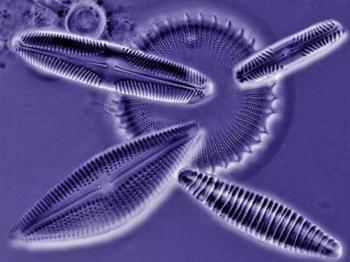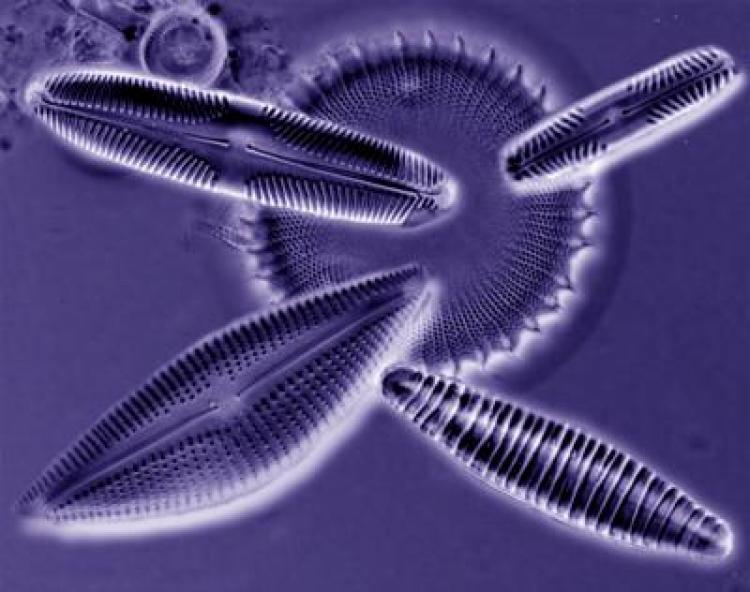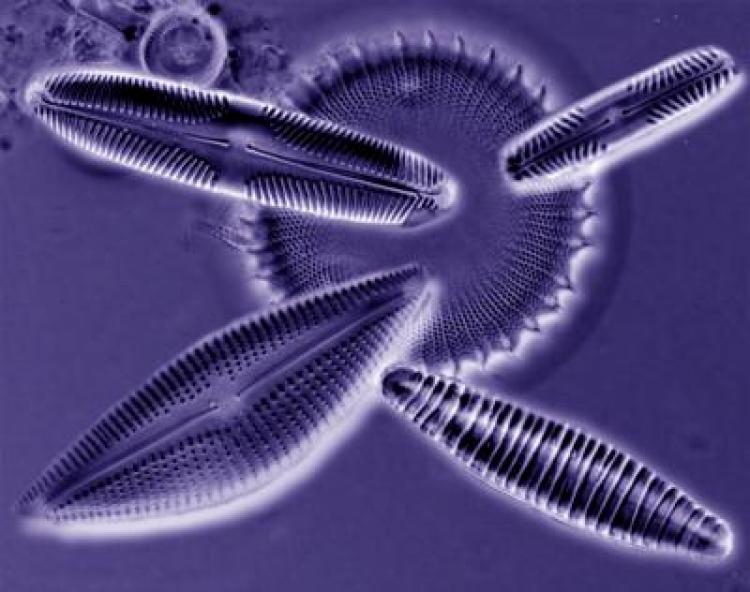Biodiversity Important For Life
With some scientists predicting that species loss is happening so fast we are heading for another mass extinction, ecologists have been trying to work out just what effect this loss of biodiversity would have on our lives.

Biodiversity: Streams contain a variety of types of algae that remove pollutants from the water. This microscope image shows several species of algae similar to those used in the University of Michigan biodiversity study. Courtesy of Danuta Bennett
|Updated:




